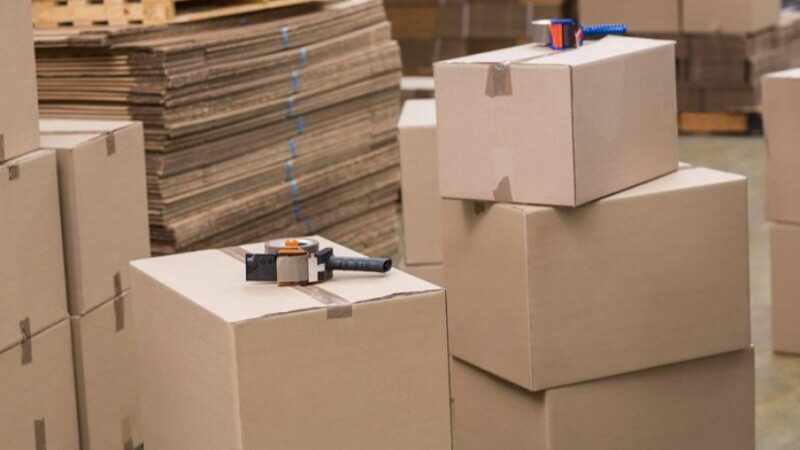Chromium-molybdenum steel for high temperatures

21CrMoV5-7 alloyed boiler steel for shafts: description, importance, and properties
Today, steel is a vast topic. There are multiple alloy variations, and a small change can have big consequences for businesses of all sorts. In this article, we will have a closer look at 21CrMoV5-7 steel for energy and chemical purposes.
Tough steel alloys for hot working conditions
Alloyed steels, as the name suggests, contain alloying elements in varying proportions. This allows the material to reach desired hardness levels. In addition, different variations of element compositions allow the production of larger parts with transformed structures suitable for the most demanding uses.
21CrMoV5-7, 1.7709, St460Ts standard represents a chromium-molybdenum-vanadium alloy, a quite popular boiler steel for shafts. It has superior toughness, strength, and thermal stability. Especially after QT processing (quenching and tempering). The choice of particular alloying elements is based on the type of characteristic that needs to be improved.
Overall, small percentage changes can significantly impact the high-temperature and yield strength, giving the alloy good hydrogen corrosion resistance and extreme temperature resilience. Such steels are normally quenched in oil, and this allows the production of parts with very complex shapes. That means the industrial value of 21CrMoV5-7 is immense. Nevertheless, extreme environments with hot water and gases are key destinations where this alloy performs especially well.
The implementation of high temperature alloy steels
Boiler steel 21CrMoV5-7, 1.7709, St460Ts is mainly used in the energy and chemical industries, where numerous parts work in difficult conditions often exceeding temperatures of 550℃. High resistance to hot gases, high ductility, and weldability when the appropriate conditions are met – these are properties often required. This alloy also cuts well, which is yet another business advantage. In addition, steel 21CrMoV5-7 +QT outperforms other alloys at elevated temperatures.
Therefore, this chromium-molybdenum steel plate is widely used in petroleum refining, chemical and hydrogen-containing units, high-temperature equipment, as well as commonly used steel pressure vessels. 21CrMoV5-7 +QT steel pipes include round, square, and rectangular tubes and are often used in the manufacture of high-temperature and high-pressure resistant valves, bicycle frames, screwdriver bits, etc.
To make things more clear, a simplified list is in order. 21CrMoV5-7 finds supporters in the production of small components working at temperatures (500-550°C), such as:
- rotor parts for steam or wind turbines
- screws and nuts improved according to EN10269
- various heat-treated parts, usually made of round bars
Boiler steel 21CrMoV5-7 is also used for the production of large-sized elements like:
- shafts
- furnace and tank components
- pipeline components, flanges, covers
- heat-resistant steel structures for various purposes.
The properties of 21CrMoV5-7 chromium-molybdenum pipes
As we have said before, the combination of Cr, Mo, V, and other elements can effectively improve the performance and resistance of steel pipes against the influence of relatively high temperatures. Different variations offer small quality changes according to the industrial demand. Chromium, for example, improves hardness and toughness, while more vanadium maintains the finer grain structure when temperatures begin to soar. The addition of this component also improves the thermal stability against hydrogen at high pressure.
Molybdenum, on the other hand, reduces the phenomenon of brittleness during preparation. It strengthens the ferrite solution and improves the stability of carbide, which is beneficial to the strength of steel at high temperatures. Bigger Mo content is associated with 21CrMoV5-11 alloy variation. Because of that detail, its heat resistance is slightly better.
Chrome-molybdenum boiler steel for shafts can be additionally improved out of the box, so to speak. Some issues, like too much brittleness after prolonged exposure to extreme conditions, for instance, are reversible. They can be eliminated by appropriate heat treatment. Dehydrogenation treatment and post-weld heat treatment can not only eliminate residual stress but also improve the mechanical properties and hydrogen corrosion resistance of 21CrMoV5-7 steel pipes.
The prices of boiler steel for shafts
21CrMoV5-7, 1.7709, St460Ts doesn’t have a universal pricing system like gold, for example. And since alloy versions offer slightly different chemical compositions, the price tags can strongly depend on the quantity of particular element included in the product. Besides, you can buy heat-treated materials in the form of rolled round bars, peeled bars, drawn bars, and open-die and die-forged bars, as well as materials in the raw, softened, or forged state, such as square bars and square billets. That also impacts the price. The best way to get an estimate for particular projects is to make an inquiry at a professional dealership centre.







